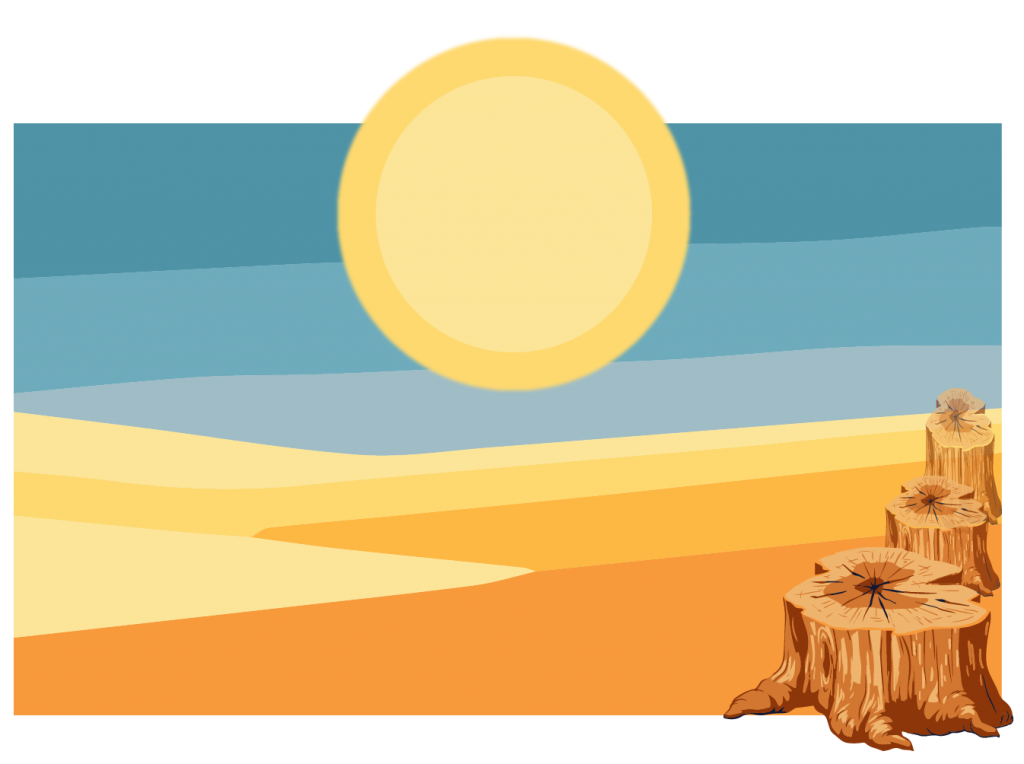Dear Future Generations: Sorry
 Dear Future Generations: Sorry
Dear Future Generations: SorrySometimes scientific names, their dependence on Greek and Latin in particular, can feel confusing and opaque, jargon intended only for the specialist. At other times, they make things painfully clear. Take for example the terms heterotrophs and autotrophs.
Humans are heterotrophs. Hetero = other, trophos = feeder: we must be fed by others in order to survive. Plants are autothrops, self-feeders. They make their own food by turning sunlight, air, and water into sugars. Implicit in these names is a connection between humans and plants. Autotrophs feed heterotrophs. We need sunlight and CO2 to take the forms of sugars, fats, and proteins in order to eat them, and plants are the crucial first step in this transformation. If I stand outside with my feet in the dirt and my face towards the sun, all I’m likely to get is a sunburn. Plants, in the same situation, get busy turning carbon and light into tasty treats.
I thought about this as I watched Prince Ea’s piece “Dear Future Generations: Sorry.” Prince Ea is standing in a desert landscape, and he is apologizing to future generations for the damage we’ve inflicted on the earth. “The Amazon desert,” he explains, used to be called the Amazon forest, and then he realizes that he needs to explain trees to his audience, because they have no experience of trees.
This part of his piece strikes me as absurd, and that, I think, is his intention. Though apocalyptic movies may suggest otherwise (think of the sandy setting for Mad Max, for example), we humans will not make it without plants. Prince Ea lists what trees do for us: they purify our air, store carbon, filter water, provide us with food and medicine. Long before the earth is denuded of its last tree, humans will be gone. Trees make their own food, and we need them to make ours. If plants go extinct, not only will we realize we can’t eat money, we will also realize we can’t eat sunlight. And Prince Ea knows this. “To betray nature is to betray us. To save nature is to save us. If we don’t all work together, we will be equally extinct,” he says at the end of his piece.
This week has been a week of climate protests and speeches. In Brazil, Indigenous people and allies are protesting the destruction of the rainforest. In the UK, Swedish Greta Thunberg addressed MPs at Westminster, and thousands of Extinction Rebels gathered in London, disrupting traffic, staging die-ins, getting arrested. A group of young activists took over a roundabout outside Heathrow, holding signs with the question “Are we the last generation?” It sounds a bit melodramatic, but it is a question more in touch with reality than the idea that we can do without the Amazon forest.
We are heterotrophs, we are fed by others. If we do not act so that those who feed us can live, we will have nothing to eat, nothing to breath, and nothing to drink. There will be no future generation unaccustomed to trees, not because this exaggerates the scale of our destructive behavior, but because we are utterly dependent on trees. We need them so much more than they need us.
